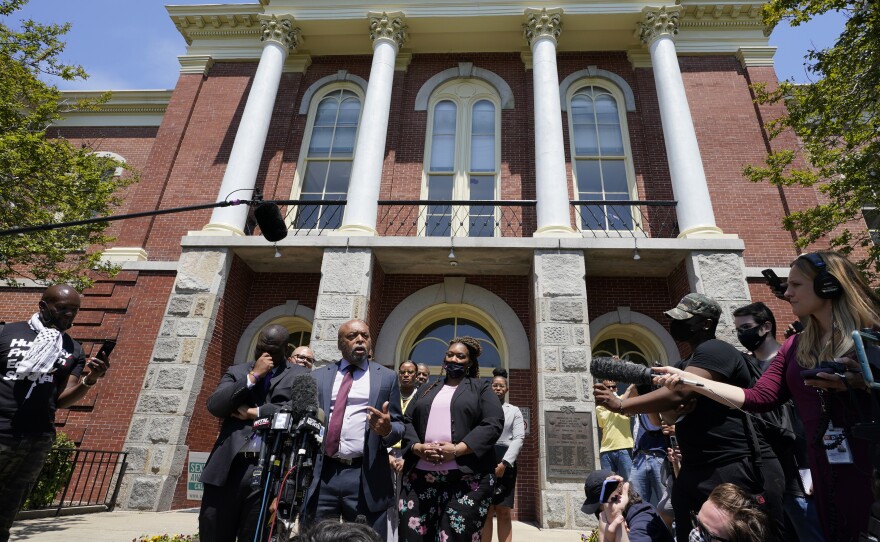A North Carolina sheriff has identified the seven deputies who were on the scene of last week's fatal shooting of Andrew Brown Jr. and subsequently placed on administrative leave – four of whom have been cleared to return to duty.
Deputies shot and killed Brown, a 42-year-old Black man, while carrying out search and arrest warrants at his home on Wednesday in Elizabeth City, N.C. The Pasquotank County Sheriff's Office said that Sheriff Tommy Wooten was releasing the names of the deputies on the scene as part of his promise of transparency and accountability.
Wooten said in a statement that it's "obvious" from footage of the incident and preliminary investigation that four deputies did not fire their guns.
The three deputies who did fire shots will stay on administrative leave pending investigations, he added. They are: Investigator Daniel Meads, Deputy Sheriff II Robert Morgan and Cpl. Aaron Lewellyn. Morgan and Meads have each been with the sheriff's office for more than five years and Lewellyn has served just over two years.
Two others resigned after the shooting incident: Deputy Sheriff II William Harris and Lt. Christopher Terry, both of whom started on the force over 11 years ago. Deputy III James Flowers, who's been with the sheriff's office since 2000, has decided to retire.
"After reviewing the preliminary conclusions of the independent investigators conducting the internal review, and after carefully examining the body camera footage of the incident with my own staff, it's obvious that four of the deputies never fired their weapons and deserve to be reinstated to active duty," Wooten said in the Thursday statement. "More investigation is necessary into the three deputies who did fire their weapons and they will remain on administrative leave pending completion of the internal investigation and/or the criminal investigation being conducted by the State Bureau of Investigation."
Wooten, facing mounting pressure to release the body camera footage of the deadly shooting, said he has asked the state court to allow public release of the videos, which a judge on Wednesday postponed for at least 30 days.
Superior Court Judge Jeff Foster ruled that turning over the footage to the public could threaten the safety of the deputies and interfere with the state's investigation.
Foster did allow Brown's family and lawyer to privately view some of the footage once the identities of the deputies in it were concealed.
Attorneys for Brown's family said Monday that they were shown just 20 seconds of body cam footage in which deputies' faces had been blurred and they described the action by deputies as an "execution." District Attorney Andrew Womble disputed that conclusion, saying Brown's car "made contact with law enforcement" before deputies opened fire.
An independent autopsy commissioned by Brown's family concluded that Brown died from a gunshot to the back of the head.
The FBI has opened a civil rights investigation into Brown's death. Gov. Roy Cooper has called for a special prosecutor to handle the case.
Brown was fatally shot one day after a Minnesota jury found a former Minneapolis police officer guilty of murder in the death of George Floyd, another Black man.
Copyright 2021 NPR. To see more, visit https://www.npr.org.






